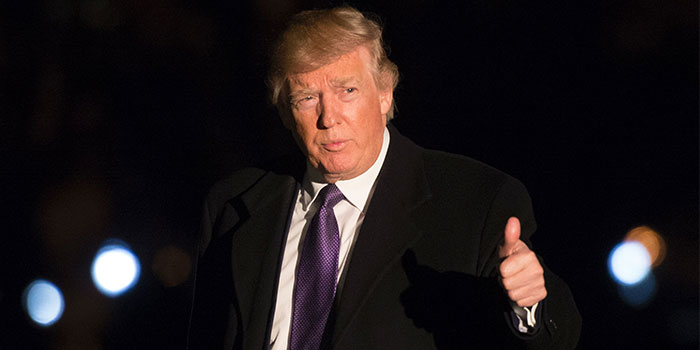
Muscat: Omani students in the United States should not travel outside the country in February and March, the Cultural Attaché in Washington has announced.
Following President Donald Trump’s short-lived executive order that banned the entry of citizens from seven Muslim majority countries, the Embassy of Oman in the United States has restricted Omani students from leaving America until the end of March.
Though the travel ban did not affect Omanis, Dr.Talal Al Balushi, Cultural Attaché to the Embassy, said, “New extreme vetting measures at the airport may cause issues, especially for those who ignore basic security standards.”
He explained that if students have an emergency reason to leave the country, they must first obtain approval from the Cultural Attaché and the Office of International Students in their universities, and must inform them of their exact travel dates.
“Many representatives from the US universities have contacted the embassy to express their support for Omani students and Muslims in general, expressing their resistance against the ban,” Dr Balushi said.
In an email sent by the Omani Cultural Division to Omani students, they were informed of the travel limitation, and were also advised about general behaviour. Every Omani citizen should heed such advice while visiting the United States.
Ibrahim Al Sulaimani, a sophomore Omani student studying Mechanical Engineering at the Cleveland State University, expressed his disappointment at the recent political changes. “I understand that the Omani embassy is trying its best to protect all Omani students who are studying in America, but there are students who didn’t get a chance to travel back home during summer or Christmas, and (therefore) this is a difficult time,” he said.
The Cultural Attaché stressed that there will be more stringent rules regarding visa issuance during this period and urged students to behave lawfully.
The embassy’s advice also included not delaying payments in case of any fine or traffic tickets, being diligent regarding any court dates, and only donating to official charities.
“Omani students should also make sure to remove any explicit, violent, or inappropriate content on their phones, even if it is comedic in tone,” the email stated.
The extensive advice for students in the email also included seeking Omani Embassy’s help if any legal situation or conflict should occur.
“We urge students to behave diplomatically, and be cautious when responding to any questions that involve religious or political ideology,” it said. On a more uplifting note, Al Sulaimani expressed a positive change among his campus community in the light of recent events.
“I have not felt any hostility. In fact, most multicultural communities, such as the Hispanic and Muslim organizations, have come together at this time to show solidarity with Muslims. The university has been very supportive as well,” he said.
The Cultural Attaché also urged students to stay calm and collected, avoid suspicious gatherings or areas, and keep their belongings and identification documents safe. “Avoid any anti-Islamic groups and their gatherings, and refrain from comments regarding them,” he counselled.
Dr. Al Balushi also warned students against inappropriate social media behaviour, such as using misleading and inappropriate profile pictures.
The students must also refrain from commentary that is discriminatory, abusive or infringes on intellectual property rights.
“I urge the students to pay full attention to studies as this is their main goal (and the reason) for being in the United States,” he said.